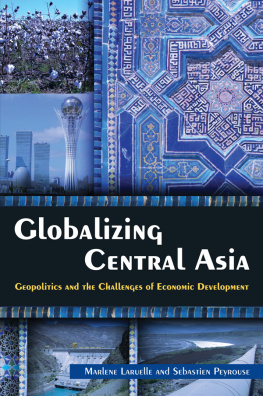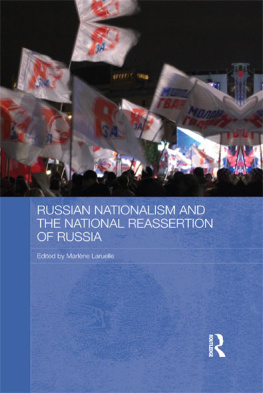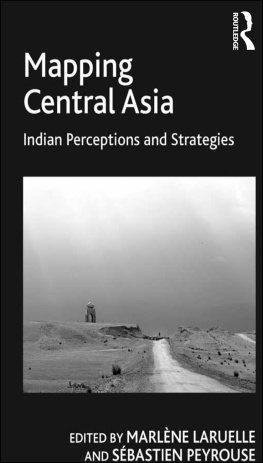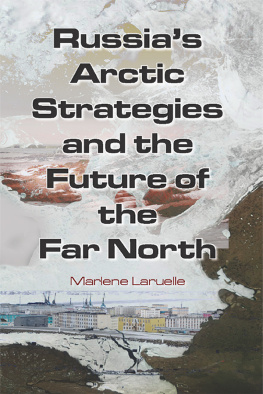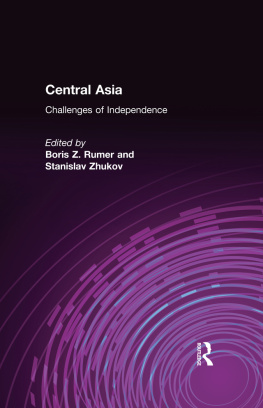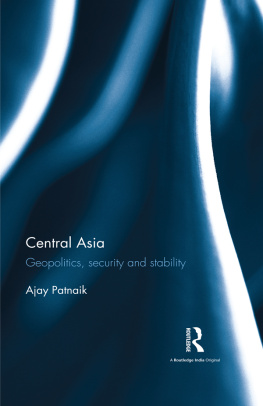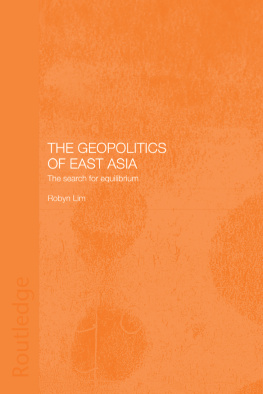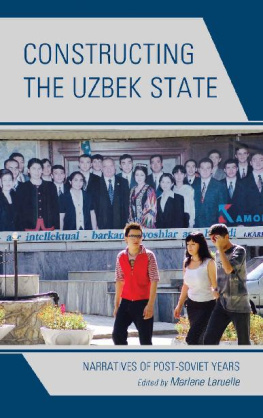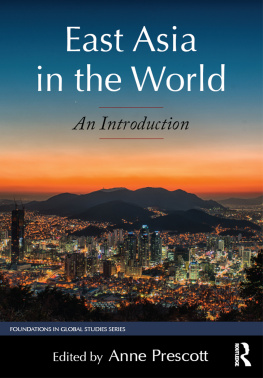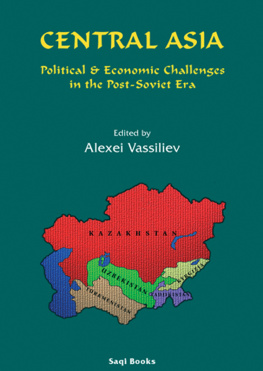Central Asia, as it emerges from a political and economic system that was closed until the end of the twentieth century, is a textbook case for globalization. Its entry into the global arena must be understood not only through Central Asian states interaction with numerous external players, but also in geo-economic terms. The regions natural resources compel the attention of rivalrous great powers and ambitious internal factions. Russia and China dominate the horizon, with other global players close behind. The local regimes are caught between the need for international collaborations to valorize their resources and the need to maintain control over them in the interest of state sovereignty. Local patterns of development thus become a key driver of external actors involvement and shape the mechanisms by which the Central Asian states are forging a place for themselves in the globalized world.
This pathbreaking introduction to Central Asia in contemporary international economic and political context answers the needs of both academic and professional audiences.
First published 2013 by M.E. Sharpe
Published 2015 by Routledge
2 Park Square, Milton Park, Abingdon, Oxon OX14 4RN
711 Third Avenue, New York, NY 10017, USA
Routledge is an imprint of the Taylor & Francis Group, an informa business
Copyright 2013 Taylor & Francis. All rights reserved.
No part of this book may be reprinted or reproduced or utilised in any form or by any electronic, mechanical, or other means, now known or hereafter invented, including photocopying and recording, or in any information storage or retrieval system, without permission in writing from the publishers.
Notices
No responsibility is assumed by the publisher for any injury and/or damage to persons or property as a matter of products liability, negligence or otherwise, or from any use of operation of any methods, products, instructions or ideas contained in the material herein.
Practitioners and researchers must always rely on their own experience and knowledge in evaluating and using any information, methods, compounds, or experiments described herein. In using such information or methods they should be mindful of their own safety and the safety of others, including parties for whom they have a professional responsibility.
Product or corporate names may be trademarks or registered trademarks, and are used only for identification and explanation without intent to infringe.
Library of Congress Cataloging-in-Publication Data
Laruelle, Marlene.
Globalizing Central Asia: geopolitics and the challenges of economic development / by Marlene Laruelle and Sebastien Peyrouse.
p. cm.
Includes bibliographical references and index.
ISBN 978-0-7656-3504-4 (hardcover : alk. paper)ISBN 978-0-7656-3505-1 (pbk. : alk. paper)
1. Economic developmentAsia, Central. 2. GeopoliticsAsia, Central. 3. Asia, CentralForeign economic relations. 4. GlobalizationAsia, Central. I. Peyrouse, Sibastien. II. Title.
| HC420.3.L374 2012 |
| 338.958dc23 | 2012011121 |
ISBN 13: 9780765635051 (pbk)
ISBN 13: 9780765635044 (hbk)
Contents
Part I. Great Games and Small Games:
The Strategies and Outcomes of External Actors
Part II. Facing Globalization:
Strengths and Weaknesses of Central Asias Economies

Globalization is now one of the most used words in the media, politics, and academia. This multifaceted concept has become a catchall into which anyone can read whatever he or she wantsoften with a heavy dose of ideology. Advocates of complete deregulation of the economy may argue that the state has lost its regulatory role in a global era; some resist globalization on protectionist and nationalistic grounds; still others advocate alternative globalizations, whether based on world citizenship or on environmental or degrowth theories. In the end, however, when we separate the reality from the hype, we see that the history of man is a history of globalization: large population migrations in prehistoric and ancient times; the dissemination of culture through medieval scholars, world religions, or great voyages of discovery and colonial conquest; the establishment of international organizations such as the Red Cross or the League of Nations; the rise of communism as the first major ideology to transcend national boundaries. Contemporary globalization has therefore a long lineage.
Another exaggeration is the idea that globalization abolishes space and time. In actuality, only capital markets are truly globalized, transcending physical borders. Information, too, is immediateat least some of italthough it is not yet borderless. But many other aspects of human life are still marked by time and space, and in most senses, the borders of nation-states continue to be as relevantespecially in some parts of the globeas ever. The vast majority of the worlds people never leave the territory where they were born; they may be able to connect to the wider world via Facebook, but their everyday experiences are still demarcated by space and bounded by access to transportation. The new interactions that arise between states, consumers, transnational corporations, and civil society entities do not mean the end of the state; the state is still the only formal political space in which the civil rights of individuals are expressed, or for which we fight.
Nor does globalization spell the end of geography. Economic activitiesoutside of financeare still geographically located. The old geography of production, distribution, and consumption still functions, but it is being transformed. In Peter Dickens description, economic globalization is characterized by an increasingly complex geography of production, distribution and consumption whose scale has become, if not totally global, at least vastly more extensive, and whose choreography has become increasingly intricate.1 The historic patterns of trade between Europe, North America, and Japanwith intensive commercial and financial flows and dense networks of transport and communicationsare increasingly challenged by China, the Asian tigers and dragons, and individual countries like Brazil or South Africa. Of course, there are still persistent peripheries: sub-Saharan Africa, a large part of Latin America, and Central Eurasia. Coreperiphery geography is evolving dramatically, and the societies that are in the process of catching up are quite changed by the time they enter the globalized world. The Chinese workforce, for instance, will soon be too expensive for Chinese strategies of producing cheap goods, and sub-Saharan African countries attract Chinese businesses.
Globalization is also multi-scale. It impacts not only global flows, but also the events of everyday life, and it has a regional dimension. Archipelago economies are forming, focused on one or more economic powers that drive an entire region: the United States in North America; the European Union for Europe, the Mediterranean region, and Russia; and China for the Asia-Pacific. China, India, Brazil, and South Africa are the main emergent powers, grouped under the BRICS acronym. Russia is conventionally included in this group, but its membership is questionable. The Russian economy experienced significant growth in the beginning of the twenty-first century compared to its collapse in the previous decade, but on a longer scale Russias economy compared to the Soviet one can be read as in decline. In many respects Russia is a former power; it is not emergent, but rather in a phase of withdrawal, like Europe.



